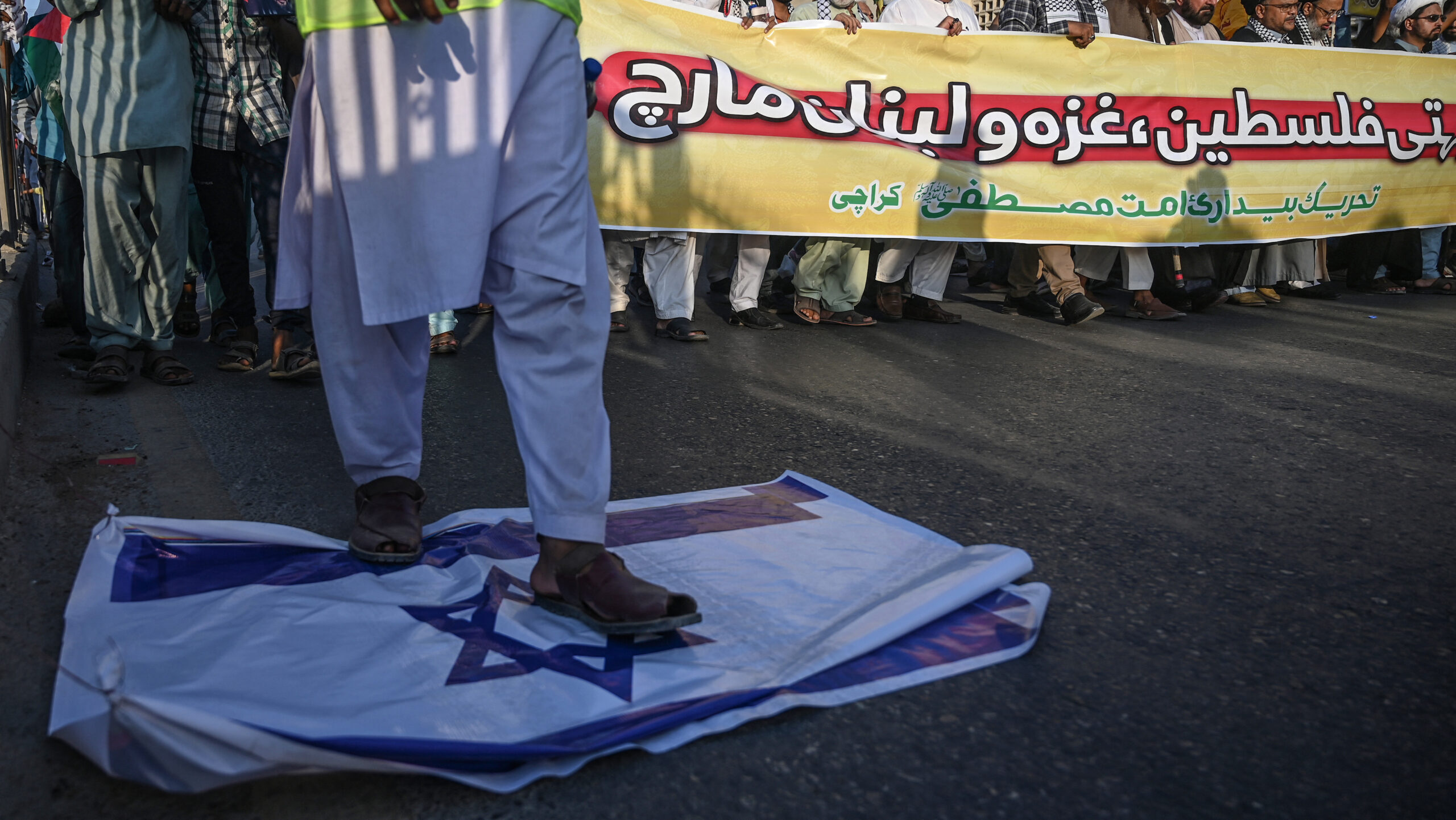Pakistan Criminalizes Zionist Activity, Sparking Accusations of Intolerance
Pakistan is believed to have no Jewish population and no Zionist movement, raising questions about the rationale behind a new law that makes Zionism punishable by up to three years in prison
[Islamabad] Promoting Zionist ideas or displaying Zionist symbols is now a criminal offense in Pakistan following newly passed legislation. On Thursday, the Senate Standing Committee on Interior approved a bill that imposes a maximum three-year prison sentence for “promoting Zionism to incite hatred” and a maximum two-year prison sentence for “displaying Zionist symbols with the intent to create public unrest.”
The bill was introduced by Afnan Ullah Khan of the ruling Pakistan Muslim League (N) party. In his speech, Afnan said that “the books of Zionism” call for killing dissenters. “They are martyring children in Gaza under this ideology,” he said.
No committee member opposed the bill.
Joshua S. Krug, a visiting professor at Germany’s Center for Jewish Studies Heidelberg, told The Media Line that Afnan “seems to misunderstand the nature, history, and realities of Zionism and the modern Middle East.”
There are no specific books of Zionism. Perhaps the senator incorrectly refers to the antisemitic Protocols of the Elders of Zion, a work long used to misrepresent Jews.
“There are no specific books of Zionism,” Krug said. “Perhaps the senator incorrectly refers to the antisemitic Protocols of the Elders of Zion, a work long used to misrepresent Jews.”
He noted that Zionists and non-Zionists coexist in Israel. “Despite challenges, people from varied backgrounds, including Arabs and Jews, live and develop freely,” he said.
Give the gift of hope
We practice what we preach:
accurate, fearless journalism. But we can't do it alone.
- On the ground in Gaza, Syria, Israel, Egypt, Pakistan, and more
- Our program trained more than 100 journalists
- Calling out fake news and reporting real facts
- On the ground in Gaza, Syria, Israel, Egypt, Pakistan, and more
- Our program trained more than 100 journalists
- Calling out fake news and reporting real facts
Join us.
Support The Media Line. Save democracy.
In a short conversation with The Media Line, Afnan noted that the bill “precisely opposes Zionism.” “It does not target Judaism as a whole,” he said.
In a civilized world, there is no place for an ideology that indiscriminately targets women and children. Such acts of violence perpetuate fear, trauma, and suffering, causing lasting damage to affected individuals and communities.
“In a civilized world, there is no place for an ideology that indiscriminately targets women and children,” Afnan said. “Such acts of violence perpetuate fear, trauma, and suffering, causing lasting damage to affected individuals and communities.”
He did not explain his rationale for introducing the bill in a country that has no Zionist movement to speak of.
Before Pakistan’s independence, a significant Jewish community resided in the cities of Karachi and Rawalpindi. Jews lived peacefully for the most part and had several communal institutions. With the establishment of the state of Israel, antisemitism in Pakistan grew rapidly, and many Pakistani Jews fled to Israel.
Today, no Jews are believed to remain in Pakistan. But for those who know to look for it, Jewish history in Pakistan is still visible. Karachi’s Merewether Clock Tower features a Star of David, and gravestones in the Juda Shahi cemetery have Hebrew inscriptions.
This tower, named after Sir William L. Merewether, the commissioner of Sindh at the time, built in 1892, stands as a testament to the multicultural history of this vibrant city. As time passed, a bustling transit hub emerged around this historic landmark.
Sajjad Azhar, a Rawalpindi-based historian, told The Media Line that the religious freedom that once characterized India and Pakistan has significantly diminished over the past century.
The new bill reflects this intolerance. Pakistan’s recent anti-Zionism bill is perplexing because there is no active advocacy of Zionism or Jewish population remaining in the nation. It begs the question, what is the point of passing such a bill?
“The new bill reflects this intolerance,” he said. “Pakistan’s recent anti-Zionism bill is perplexing because there is no active advocacy of Zionism or Jewish population remaining in the nation. It begs the question, what is the point of passing such a bill?”
The bill, which stipulates that arrests for promoting Zionism will require a warrant and be classified as bailable offenses, appears to be largely symbolic. The symbolism may be intended to communicate Pakistan’s stance on international issues or to reinforce ideological unity within the country.
Kaswar Klasra, an Islamabad-based geopolitics expert, said that the bill aligns Pakistan with the Palestinian cause. That alignment may “complicate Pakistan’s diplomatic relations with countries taking a more nuanced view on Israel and Zionism,” he told The Media Line.
He added that the new legislation may also curtail freedom of expression in Pakistan.



